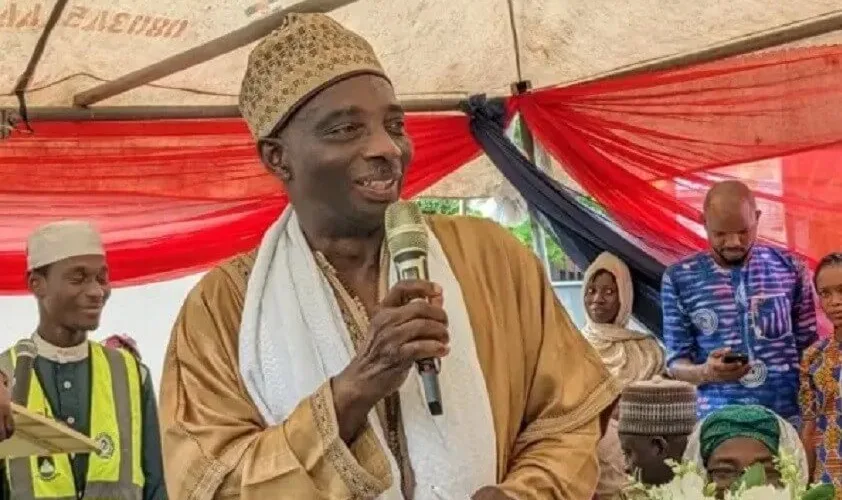‘LAGOS HAS BEEN OPERATING SHARIA SINCE 2002,’ SAYS VARSITY DON
The Chief Imam of Lagos State University (LASU), Prof. Amidu Sanni, has urged other South-West states to emulate the Lagos State model of Sharia Law.
Sanni spoke last Wednesday with the News Agency of Nigeria (NAN) on the domestication of Islamic law in South-West Nigeria, saying that Sharia law has been in operation in Lagos State since 2002 without any issues.
He described Sharia as an internationally and nationally recognised instrument that does not hinder societal growth when its operations are understood and administered, “as is the case in Lagos State.”
The Islamic teacher noted that it is unfortunate that there has not been a proper understanding of Islamic personal and family matters. According to him, these are often wrongly interpreted as the sole focus of Islamic Sharia.
He said: “Sharia encompasses personal, business, criminal, contract, and penal matters. Matters related to marriage, child fostering, inheritance, execution of will, divorce, and other aspects of personal matters can be resolved or executed according to Islamic judicial provisions, as allowed by the Nigerian Constitution.”
Sanni also pointed out that the 1999 Constitution provides for the Sharia Court of Appeal and allows elected public officials to be sworn in by the Grand Khadi of the Sharia Court of the State.
He explained that some states in the South-West have been operating Sharia without any issues, as long as it remains an Alternative Dispute Resolution (ADR) that is nationally and internationally recognised.
“In Lagos State, for example, the Sharia Panel has been operating since 2002 and even published its First Law Report in 2005, with High and Appeal Court judges in attendance,” he said.
He stated that the high courts in Lagos State have often referred issues of Muslim Personal Law to the Sharia Panel, as Customary courts have no jurisdiction over such matters.
“In fact, parties to family disputes have sometimes requested that conventional courts allow their issues to be referred to the Sharia Panel in Lagos,” he said. “Such matters have been resolved without public outcry”
Sanni called on other states, especially in the South-West, to emulate Lagos State in implementing Sharia, noting that the Sharia legal system is independent of customary law.
He stated that the 1999 Constitution guarantees freedom of religion, adding that this should be respected.
His words: “The 1999 Constitution also provides for the Sharia Court of Appeal and for elected public officials to be sworn in by the Grand Khadi of Sharia Court of the State.”
He however regretted that some governors in the South-West have openly opposed the Sharia panel inspite of the constitutional provisions.
He appealed to Muslims to avoid violent reactions and instead test the validity of the alleged illegal action of banning the Dispute Resolution Panel at the law court.
Sani also charged proponents of Sharia to embark on public enlightenment to mobilise public opinion in favour of their free choice, as guaranteed by the Constitution and their faith.
He decried any resort to public disturbance, saying the country cannot afford any further threats to peace and harmonious living given the existing security challenges.
To join our CITY LAWYER Channel on WhatsApp, click here
To join our Telegram platform, click here
COPYRIGHT 2022 CITY LAWYER. Please send emails to citylawyermag@gmail.com. Join us on Facebook at https://web.facebook.com/City-Lawyer-Magazine-434937936684320 and on “X” (TWITTER) at https://twitter.com/CityLawyerMag. To ADVERTISE in CITY LAWYER or for Special Features, please email citylawyermag@gmail.com or call 08138380083.
All materials available on this Website are protected by copyright, trade mark and other proprietary and intellectual property laws. You may not use any of our intellectual property rights without our express written consent or attribution to www.citylawyermag.com. However, you are permitted to print or save to your individual PC, tablet or storage extracts from this Website for your own personal non-commercial use.
